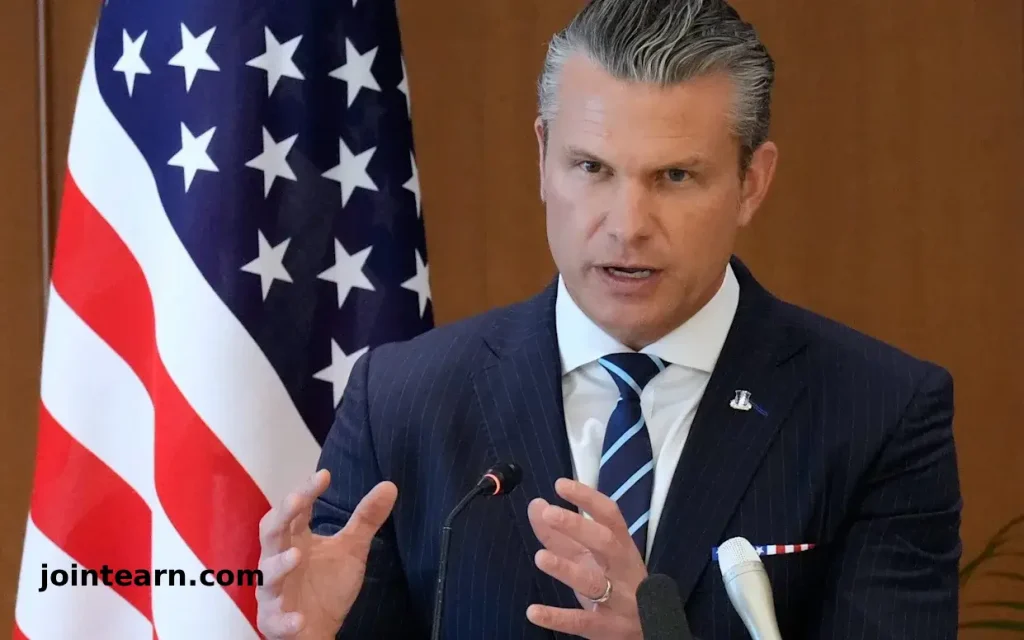
KUALA LUMPUR, Malaysia — October 31, 2025 — U.S. War Secretary Pete Hegseth confronted Beijing over its escalating military posture toward Taiwan and growing assertiveness in the South China Sea, expressing “serious concerns” during a tense meeting with Chinese Defence Minister Dong Jun on Friday.
The 75-minute bilateral, held on the sidelines of the ASEAN Defence Ministers’ Meeting (ADMM) in Malaysia, came just one day after Presidents Donald Trump and Xi Jinping pledged to stabilize U.S.-China relations in their first face-to-face summit since 2019.
Washington Raises Red Flags Over Taiwan
According to a Pentagon readout, Hegseth told Dong that while the United States “does not seek conflict,” it will “stoutly defend its interests and Taiwan’s security in the Indo-Pacific region.”
“We will continue discussions with the People’s Liberation Army on matters of mutual importance,” Hegseth said following the meeting, emphasizing continued military-to-military communication despite rising tensions.
Beijing’s response was predictably firm. A statement from China’s Defence Ministry reiterated that Taiwan’s reunification is “an unstoppable historical trend” and warned the U.S. to “exercise caution in its words and actions” and “unequivocally oppose Taiwan independence.”
China’s Expanding Military Footprint
China has increased its military activities around Taiwan, flying record numbers of warplanes near the island and conducting large-scale naval exercises in nearby waters.
At the same time, Beijing’s coastguard and maritime militia have stepped up confrontations with Philippine vessels in the South China Sea — including the use of water cannons earlier this month — prompting regional alarm and repeated U.S. condemnations.
“China’s activities are getting more expansive and more aggressive,” Philippine Defence Secretary Gilberto Teodoro Jr. warned in May.
Analysts say these “grey-zone tactics” — including cyberattacks, disinformation campaigns, and undersea cable sabotage — aim to undermine Taiwan’s morale without triggering outright war.
Taiwan’s President William Lai this week reiterated that his government rejects Beijing’s proposed “one country, two systems” framework, saying it would place the island’s democracy under Chinese control.
Diplomatic Context: Xi and Trump’s ‘Reset’
The Hegseth–Dong meeting followed Thursday’s Trump–Xi summit in Gyeongju, South Korea, where the two leaders agreed to resume dialogue on trade, technology, and export controls but did not discuss Taiwan, according to Trump.
While both sides have sought to portray the talks as a thaw in relations, the military dimension remains fraught.
Hegseth, who has long warned of China’s “credible preparations” for conflict in the Taiwan Strait, recently told The Washington Times that “it would be irresponsible for the U.S. not to prepare for China’s rapid military expansion.”
Friday’s exchange underscored that while dialogue channels have reopened, the core disputes — Taiwan sovereignty, South China Sea claims, and regional military balance — remain as volatile as ever.
Regional Alignment: Japan, the Philippines, and India
Before arriving in Malaysia, Hegseth also met Japanese Defence Minister Shinjiro Koizumi, where he again raised concerns over Chinese aggression and affirmed Washington’s commitment to Japan’s security under the U.S.–Japan alliance.
Meanwhile, India and the U.S. signed a 10-year defence cooperation agreement this week, expanding arms sales and intelligence sharing — part of a broader Indo-Pacific strategy to counterbalance China’s influence.
The Indo-Pacific Equation
Despite the sharp rhetoric, both Washington and Beijing appear intent on keeping lines of communication open to avoid military miscalculation.
Hegseth summarized this dual approach succinctly:
“The United States does not seek conflict — but we will defend freedom of navigation, protect our allies, and ensure the Indo-Pacific remains free and open.”
Beijing, however, has made clear that Taiwan remains non-negotiable, setting the stage for what experts describe as a “managed confrontation” between two rival powers — one seeking deterrence, the other demanding deference.


Leave a Reply